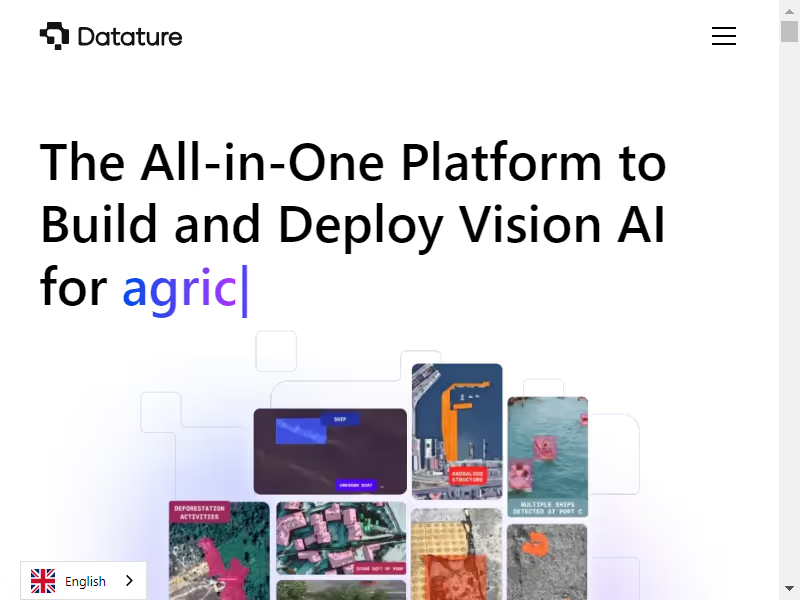
At Datature, we envision a future where machines see with human-like clarity, amplifying our ability to tackle complex challenges across industries such as precision agriculture, industrial safety, and urban infrastructure. Our mission is to empower every team, irrespective of technical skill, to harness the full potential of machine learning technology rapidly and effectively.
By building Nexus, a unified, no-code Vision AI platform, we are transforming the way computer vision solutions are created and deployed. We streamline the entire machine learning lifecycle—from data labeling to model deployment—making sophisticated AI workflows accessible and scalable for real-world impact.
Driven by deep expertise in AI and neuroscience, we strive to democratize advanced AI tools, fostering innovation and enabling organizations worldwide to create smarter, safer, and more responsive environments powered by intelligent vision technology.
Our Review
We'll be honest — when we first heard about Datature, we were skeptical. Another "no-code AI platform"? We've seen plenty of those promise the moon and deliver a paper airplane. But after digging into their Nexus platform, we came away genuinely impressed.
What caught our attention wasn't just the marketing speak about democratizing AI. It was the client roster: Rolls-Royce, NVIDIA, UC Berkeley. These aren't companies that experiment with flashy tools — they need solutions that actually work.
The MLOps Magic That Actually Works
Here's what makes Datature different: they've built the entire computer vision pipeline into one cohesive platform. Data labeling, model training, deployment — it's all there, and it actually talks to itself properly.
We were particularly struck by their claim of reducing annotation time by 10x. That's a bold number, but given that data labeling is often the biggest bottleneck in computer vision projects, even half that improvement would be game-changing for most teams.
Who This Really Serves
While Datature markets itself as "no-code," we think that's a bit misleading. You still need to understand computer vision concepts and have clear business objectives. What they've really built is a platform for domain experts who don't want to wrestle with MLOps infrastructure.
Think precision agriculture specialists who know exactly what crop diseases look like, or manufacturing engineers who understand quality control — but who don't want to become data scientists to solve their problems.
The Founder Factor
We always look at founding teams, and Datature's trio brings an interesting mix: AI engineering, neuroscience research, and product leadership. That combination shows in their platform — it's technically solid but clearly built with real users in mind.
Their backgrounds at companies like Gardyn and partnerships with organizations like Singapore's Civil Aviation Authority suggest they understand both startup agility and enterprise requirements. That's harder to pull off than it sounds.
Feature
No-code MLOps platform for computer vision workflows
Enterprise-grade data labeling tools
Model training and quantization for optimized performance
Flexible deployment across cloud, edge, and business processes
Unified lifecycle management: data annotation, model training, dataset management, deployment








